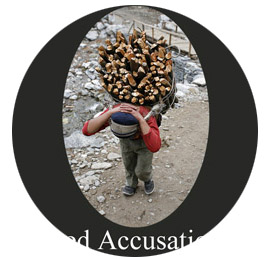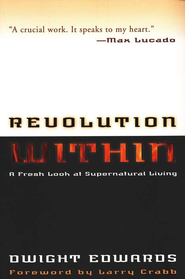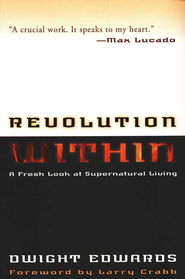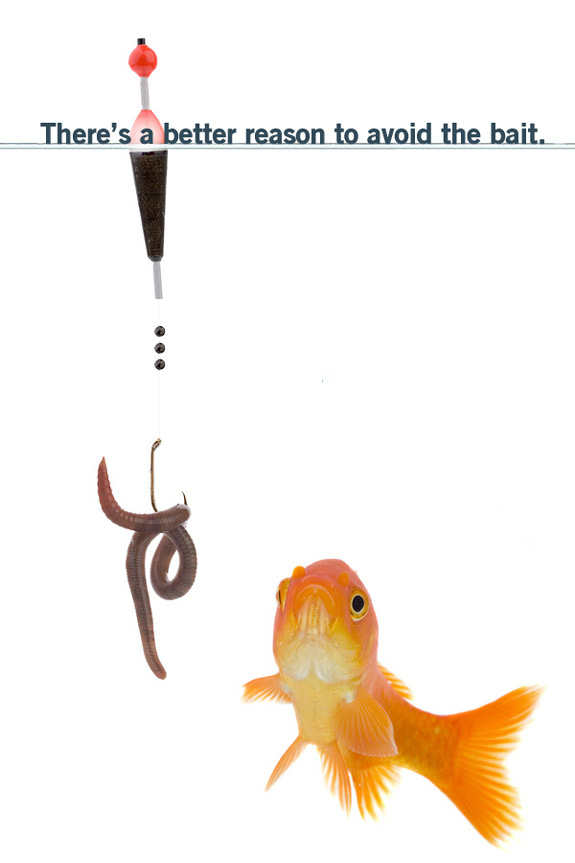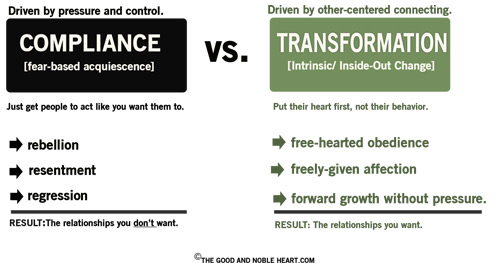
The following is reprinted from a recent blog from author John Eldredge. It articulates what's been on my own heart in these days following the Newtown tragedy:
Things fall apart; the centre cannot hold;
Mere anarchy is loosed upon the world,
The blood-dimmed tide is loosed, and everywhere
The ceremony of innocence is drowned;
The best lack all conviction, while the worst
Are full of passionate intensity.
(Yeats, The Second Coming)
Evil struck again.
And while I would prefer a solemn silence—the only good thing Job’s counselors offered him—so many unhelpful things are being said and suggested around the Newtown massacre I found myself compelled to write. Because the question of evil may be the greatest question the world faces today. How do we deal with evil? How do we prevent such tragedy?
It all depends on what you think is causing this.
I hope you will forgive my honesty, but I do not understand the shock. The grief I understand. The speechlessness, the staggering, the profound sorrow, the overwhelming sense of violation—these I understand. We are reeling from yet another assault of darkness. But our shock reveals something else altogether, something even more dangerous than armed violence.
I am describing a naiveté about the world that Christians, at least, should not be toying with.
In his brilliant essay The Wind in the Trees, GK Chesterton explains our misunderstanding by means of a great storm he experienced:
“I am sitting under tall trees, with a great wind boiling like surf about the tops of them, so that their living load of leaves rocks and roars....The wind tugs at the trees as if it might pluck them root and all out of the earth like tufts of grass. Or, to try yet another desperate figure of speech for this unspeakable energy, the trees are straining and tearing and lashing as if they were a tribe of dragons each tied by the tail.
As I look at these top-heavy giants tortured by an invisible and violent witchcraft, a phrase comes back into my mind. I remember a little boy of my acquaintance who was once walking in Battersea Park under just such torn skies and tossing trees...he said at last to his mother, ‘Well, why don’t you take away the trees, and then it wouldn’t wind.’ Nothing could be more intelligent or natural than this mistake. Any one looking for the first time at the trees might fancy that they were indeed vast and titanic fans, which by their mere waving agitated the air around them for miles. Nothing, I say, could be more human and excusable than the belief that it is the trees which make the wind. Indeed, it is a belief so human and excusable that it is, as a matter of fact, the belief of about ninety-nine out of a hundred of the philosophers, reformers, sociologists, and politicians of the great age in which we live. My small friend was, in fact, very like the principal modern thinkers; only much nicer.”
Chesterton was describing the naiveté that has since paralyzed the world, a naiveté revealed by our shock. What do you really believe about the cause of the "storm?"
You would think that after a century which included the Holocaust, Stalin, the Khmer Rouge, and the rise of terrorism to name but a few, we would have been cured from our childish ideas about evil. You would think that after any one of the hundreds of atrocities of the past few years, we would have been cured. Rwanda, 9/11, human trafficking—what is it going to take?
I was heartened at first by the early words of Connecticut Governor Dan Malloy when he said, “Evil visited this community today.” That is exactly right; that is precisely what happened. But the clarity—he may have only been using a metaphor—was quickly lost in the subsequent media barrage. Our leaders are reacting to the Newtown massacre by calling for gun control; how unspeakably foolish. Now, this is not an essay on gun control; I am speaking to our understanding of our situation and the forces we are dealing with. But the cries for gun control reveal the naiveté—they are crying for the trees to be cut down while they ignore the wind.
It is this naiveté regarding evil that is the crisis of our age. And it is most dangerous.
For the Christian knows certain things about the world, things we must never ever lose hold of. We know from whence evil comes; we know what to do about it. We know—or we are supposed to know—that we live in a world at war; we are living in the midst of a very real and extremely brutal battle with the kingdom of darkness. While most Christians are still playing at happy little life (and angry at God for “allowing” terrible things to happen), the Scriptures continually warn us of a great evil power, who rules the world, whom we must contend with. “For our struggle is not against flesh and blood, but against the rulers, against the authorities, against the powers of this dark world and against the spiritual forces of evil in the heavenly realms” (Ephesians 6:12). In other words, with the demonic.
But, apparently T.S. Eliot was right: “Humankind cannot bear too much reality.”
We seem utterly devoted to avoiding the question of evil, to misdiagnosing it, completely committed to a childish view of the world. And our foolishness is proving very costly. For as Chesterton went on to say, “The great human heresy is that the trees move the wind.” By this he means the heresy that it is economics, race, poverty, a political party or doctrine that are the real causes of evil in the world; in this case, that it is the lack of gun control that causes evil in the world. Is the evil therefore located in the gun? Far more people are killed by automobile accidents each year in the U.S.—is the evil located in those vehicles?
How long will we continue to ignore the actual wind that tortures this world “by an invisible and violent witchcraft?”
Chesterton concluded his essay with a warning: “When people begin to say that the material circumstances have alone created the moral circumstances, then they have prevented all possibility of serious change....And nothing will ever be reformed in this age or country unless we realize that the moral fact comes first.” Good and evil come first.
We prevent all possibility of serious change when we hold childish views regarding evil, regarding the Great War in which we find ourselves. I suppose for the world the naiveté is understandable. For the Christian, it is inexcusable. We cannot toy with sociological, psychological or political explanations for the evil now ravaging the planet. Because we have answers.
There are answers both to the evil in the world, and the evil in the human heart. God moved long ago to deal with both, and triumphantly. What greater hope could possibly be spoken? This is what the world longs to know—"Why doesn't God do something?" God has acted; he has intervened, at the cost of his own life. There are answers, there are solutions, there is a way out. But we will not seek them while we take a four-year-old view of the world; while we blame the the "trees" for the raging storm.
How differently would the church pray if we really believed we are at war with the kingdom of darkness? How differently would we live and act in this world?
That “difference,” my brothers and sisters, would make an enormous difference.
My response:
Some of you may read Eldredge's view and see it as a calloused, unempathetic response. Instead, I think that the most compassionate thing we can do is to take Jesus' view of evil, and his resources for disarming it, more seriously. To dismiss what Eldredge, Chesterton, C.S. Lewis, Tolkein, and many others have voiced is to dis-engage from the world's pain.
Most of us Christ-followers act as if we have no resources [other than well-meant prayers and heartbreak] to offer the world in times like this. We offer those desperate prayers and heartache out of our good hearts but in reality, we have been equipped with resources more powerful and effective than our Churchianity past has told us.
What got in the way of our seeing this?
I think what prevents many good Christians from perceiving evil's true breadth, and from knowing how to fight against it, to defeat it, is a reactionary posture to distorted views of "spiritual warfare." Because the category of "warfare" has often been mishandled in our past by well-meaning leaders, or represented in sensationalist categories, we've adopted a reactive posture: "I simply will ignore the whole thing;" rather than asking Jesus to reveal the truth of the matter.
Note: It's never helpful to build a theology based on a reaction to something. Let's ask Jesus to teach us what he knows about evil, and how he disarms it [and therefore, how we can disarm it]; and the surprising ways in which He brings unimaginable restoration from it - wringing good from wickedness' own foulest intent.
Finding Hope:
John Eldredge invites readers to download two free sessions of a recent teaching series, "Hope In the Coming Kingdom." I highly recommend it. It will be a gift for your heart. You can find it at the bottom of his own blog post here. [He will email the download link to you.]
Update on Friday, December 21, 2012 at 4:28PM by
 Jim Robbins
Jim Robbins
We give his Life and his shepherding-protection free reign, against every wolf. Confidently and without intimidation.
 Wednesday, January 9, 2013 at 7:20PM
Wednesday, January 9, 2013 at 7:20PM  Jim Robbins
Jim Robbins


























